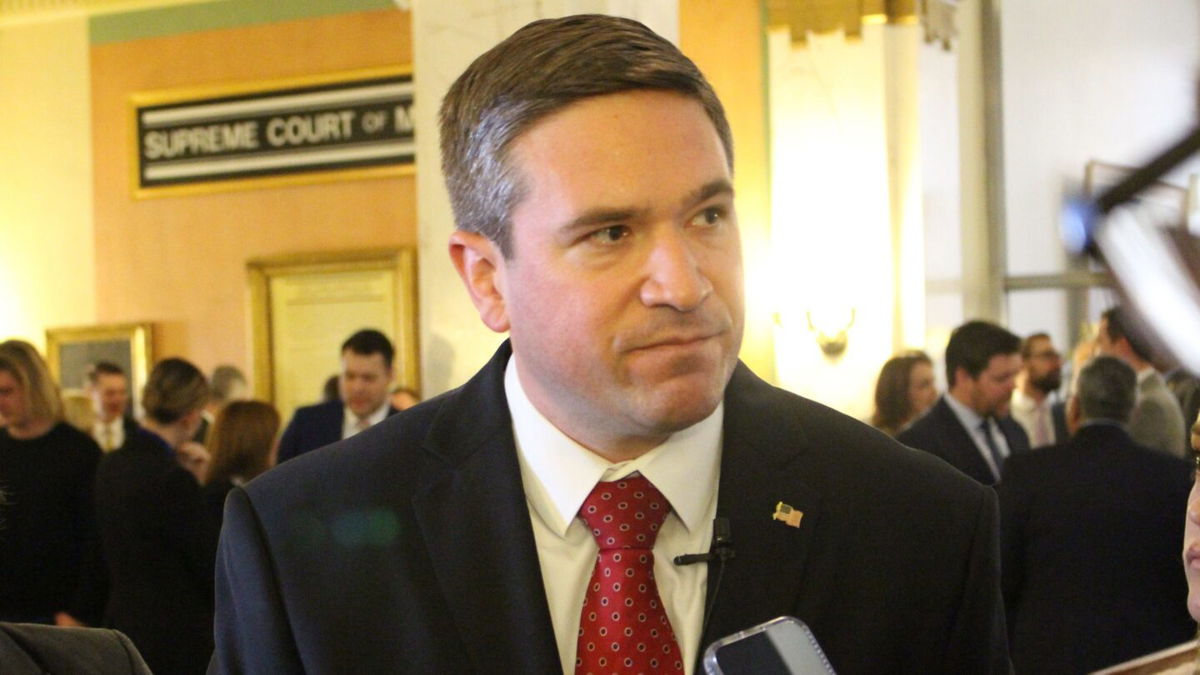Missouri attorney general drops controversial emergency rule that would have banned gender-affirming care for children and many adults

Missouri Attorney General Andrew Bailey
By Andy Rose and Nouran Salahieh, CNN
(CNN) — A controversial emergency rule to ban gender-affirming care for minors and most adults in the state of Missouri was withdrawn Tuesday by the attorney general who first proposed it, days after state lawmakers passed their own ban.
“The legislature has now passed a ban that exceeds the authority of the rule that we passed, so we will now be prepared to defend the statute in court,” Attorney General Andrew Bailey told CNN affiliate KMOV.
The attorney general’s rule – which was among the nation’s widest-reaching limits on gender-affirming care – has already been paused through at least July 20 as a lawsuit plays out.
Bailey’s rule sought to make it “unlawful” for individuals or health care providers to provide gender-affirming care without confirming that a patient has “for at least the 3 most recent consecutive years … exhibited a medically documented, long-lasting, persistent and intense pattern of gender dysphoria.”
Gender-affirming care is medically necessary, evidence-based care that uses a multidisciplinary approach to help a person transition from their assigned gender – the one the person was designated at birth – to their affirmed gender, the gender by which one wants to be known.
The rule, announced late last month, was quickly met with backlash and advocacy groups sued to stop it, asking the Circuit Court of Saint Louis County to declare the emergency rule invalid “due to the Attorney General’s lack of statutory authority to promulgate it.”
Petitioners at the time said the attorney general’s rule targets gender-affirming care with “unprecedented and unique restrictions so onerous that it effectively prohibits the provision of this necessary, safe, and effective care for many, if not most, transgender people in Missouri.”
The ACLU of Missouri on Tuesday applauded the decision to withdraw the emergency rule.
“After weeks of embarrassing Missouri on the national stage, the Attorney General has finally joined everyone else in recognizing that his hasty attempt to usurp other branches of government cannot withstand scrutiny,” the organization said in a press release Tuesday.
While the emergency rule has been withdrawn, Missouri’s legislature last week passed its own bill banning most gender-affirming care for most minors, but not transgender adults. That bill awaits the signature of Republican Gov. Mike Parson.
If enacted, the bill would bar health care providers from performing gender transition surgeries, although such surgeries are not typically done on children and many health care providers do not offer them to minors.
Republicans, including the governor, have argued that the bill is about protecting minors from permanent health treatments.
The movement to limit gender-affirming care in Missouri comes on the heels of similar bans in other states.
North Dakota Gov. Doug Burgum signed a bill last month banning gender-affirming care for most minors with the possibility of a felony for health care professionals who provide it. Indiana and Idaho have both also enacted their own bans on gender-affirming care for youths this month, and several other states have signed into law restrictions on gender-affirming care for minors in the past few years.
The-CNN-Wire
™ & © 2023 Cable News Network, Inc., a Warner Bros. Discovery Company. All rights reserved.
CNN’s Kyung Lah, Michelle Watson, Claudia Dominguez, Taylor Romine, Jack Forrest, Kaanita Iyer and Devan Cole contributed to this report.